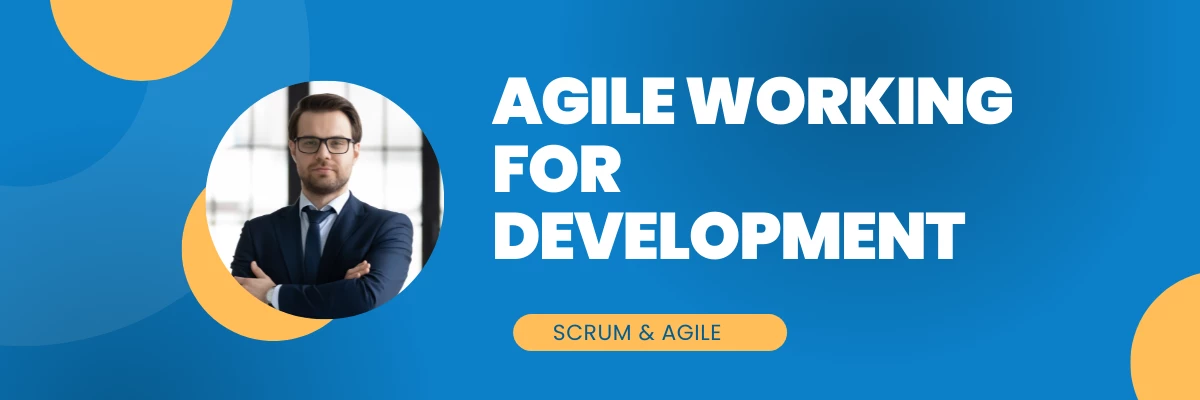Your Shopping Cart

We can help you solve company communication.



Agile is an iterative process to project management and software development that assists teams in delivering value to their customers quickly. An agile team proposes work in a small but considerable process. Conditions, plans, and outcomes are assessed continuously, so teams have a natural means for reacting to modify quickly. Agile is a group of methodologies dedicated to secured feedback processes and constant progress.
Teams choose agile to quickly respond to changes in the marketplace or customer feedback without derailing a year's worth of plans. An agile team cooperates beneath a shared idea and then works together on it. Each group sets its standards for quality, usability, and completeness, and their "definition of done" then informs how fast they'll churn the workout. Although it can be scary at first, company leaders find that when they trust an agile team, that team feels a greater sense of ownership and rises to meet (or exceed) management's expectations.
Agile invites teams to adopt a new way of working and needs managers to adjust to a unique way of leading.
With agile, administration changes from leading to coaching, from speaking to empowering, and setting limits to eradicating roadblocks. Agile managers move out of the way, reviewing in groups rather than studying up and charging members to operate through small-direction issues. They also encourage risk-taking, reassuring groups that experimentation is expected and reinforcing that learning through failure is a positive contribution.
An agile team is composed of three primary roles.
The product owner has the most profound knowledge of the product, and The Product Owner defines and communicates the goals and quality expectations. The highest importance of Product Owners is the customer and their needs. In that sense, a Product Owner interfaces between the consumer and the team, and the Product Owner also designs and manages the product backlog.
The Scrum Master is the one who manages the Scrum board, and the Scrum board must be up-to-date and documented at all times. Managers with a comprehensive resume of successful product development projects are suitable candidates for Scrum Master. They know from experience where implementation can go wrong and what to do to control or amend that.
Team members are the core parts of the Agile framework. Depending upon the type of the product, different roles according to their skills are assigned to them. They're usually autonomous and creative, regardless of working together and supporting each other. Team Members complete each other in terms of skills and experience.
The waterfall is perhaps the most well-known traditional methodology in project management. It tracks a structured, linear process, where each assignment must be concluded before proceeding to the successive one. Though this methodology might suit a long-term project (e.g., construction), it would not work in a fast-paced software development environment. Clients regularly alter their reasons and urge new deliverables.
The Lean process takes a streamlined process and strives to destroy excessive trash. There are apparent similarities between Agile and Lean, including a focus on customer satisfaction and fast delivery. However, it could be argued that Agile has an advantage in structure.
Issued by the Project Management Institute (PMI), the PMI-ACP is created for those in Agile teams or organizations embracing Agile practices. The PMI-ACP includes several Agile methodologies, including Scrum, Kanban, Lean, extreme programming (XP), and test-driven development (TDD).
Scrum is the popular Agile methodology, and being certified in Scrum can give you the exact tools to bring Agile concepts to life in the workplace. Becoming a Certified ScrumMaster (CSM) means taking the Scrum certification course and passing the exam.
The PSM I displays an ability of the fundamentals of Scrum and how to involve Scrum in teams.
Agile is an exciting approach to software development. Incorporating the product developers and clients in the planning and executing processes makes the effect a better rewarding experience for everyone concerned. When Agile programming is done correctly, organizations can continually find ways to increase the value to their customers. It gives more meaning to those actively working on the project and creates a more positive experience for the customer, producing superior results for the company. Learn Agile and its methodologies with Edtia's various Agile certifications, which best suit your profile.
Share this link via
Or copy link